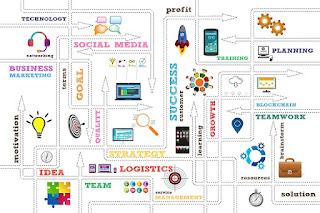The Crisis of the Modern World
The Crisis of the Modern World. In an era marked by technological advancements and globalization, the modern world finds itself grappling with a crisis that encompasses various aspects of human existence. This crisis isn't limited to a single domain; it affects our environment, society, culture, and even our personal well-being. As we navigate through these complex challenges, it becomes crucial to understand the multifaceted nature of the crisis and explore potential solutions.
Unraveling the Complex Crisis
The crisis of the modern world is not a singular event but rather a convergence of several critical issues. These issues include climate change, social inequality, loss of cultural heritage, mental health concerns, and the erosion of ethical values. Each of these challenges presents unique hurdles that require attention and action.
The Environmental Predicament
One of the most pressing issues is undoubtedly climate change. The unchecked exploitation of natural resources, deforestation, and excessive carbon emissions have led to global warming and erratic weather patterns. Rising sea levels, melting glaciers, and intensifying natural disasters paint a grim picture of the planet's future. Urgent steps need to be taken to mitigate the impact of human activities on the environment.
Bridging the Social Divide
Social inequality is another facet of the crisis that demands immediate attention. The gap between the rich and the poor continues to widen, leading to social unrest and disparities in access to basic necessities such as education, healthcare, and economic opportunities. Efforts to create a more equitable society must be a central focus.
Preserving Cultural Heritage
The modern world's rapid pace of development has often come at the cost of cultural heritage. Traditional practices, languages, and customs are fading into obscurity as globalization sweeps across nations. It's essential to recognize the value of cultural diversity and take steps to preserve and celebrate our unique identities.
Mental Health in the Digital Age
While technological advancements have brought convenience, they've also given rise to a mental health crisis. The constant connectivity and information overload have contributed to increased stress, anxiety, and even depression. Striking a balance between the digital realm and personal well-being is crucial.
The Erosion of Ethics and Values
In the pursuit of progress, ethical values have sometimes taken a backseat. Instances of corruption, dishonesty, and lack of empathy have become more prevalent. Nurturing a sense of morality and empathy within society is vital to counteract this erosion of values.
Navigating Towards Solutions
Addressing the crisis of the modern world requires collective effort and a holistic approach. Governments, organizations, and individuals must come together to create meaningful change.
Embracing Sustainable Practices
To combat environmental challenges, embracing sustainable practices is imperative. This involves transitioning to renewable energy sources, promoting afforestation, and adopting eco-friendly technologies.
Championing Social Equity
Promoting social equity entails policy changes that ensure equal access to education, healthcare, and economic opportunities for all. Efforts to reduce poverty and empower marginalized communities can help bridge the social divide.
Revitalizing Cultural Heritage
Efforts to preserve cultural heritage involve supporting local traditions, languages, and arts. This can be achieved through education programs, cultural festivals, and the integration of heritage into modern practices.
Prioritizing Mental Well-Being
Individuals must prioritize their mental well-being by setting healthy boundaries with technology, practicing mindfulness, and seeking professional help when needed. Organizations can also implement wellness programs to support their employees.
Fostering Ethical Leadership
Promoting ethical values requires fostering leadership that leads by example. This can be achieved through education that emphasizes integrity, empathy, and social responsibility.
Conclusion
The crisis of the modern world is a multifaceted challenge that requires a comprehensive and united response. By addressing environmental, social, cultural, and ethical issues, we can pave the way for a more sustainable and harmonious future.




Comments
Post a Comment